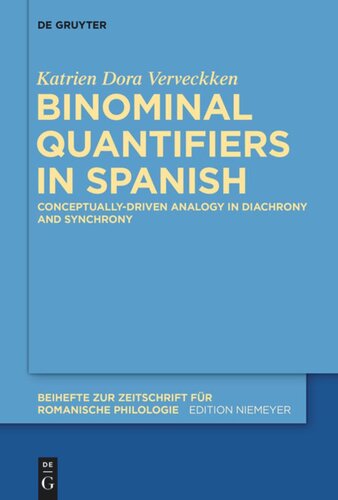

Most ebook files are in PDF format, so you can easily read them using various software such as Foxit Reader or directly on the Google Chrome browser.
Some ebook files are released by publishers in other formats such as .awz, .mobi, .epub, .fb2, etc. You may need to install specific software to read these formats on mobile/PC, such as Calibre.
Please read the tutorial at this link: https://ebookbell.com/faq
We offer FREE conversion to the popular formats you request; however, this may take some time. Therefore, right after payment, please email us, and we will try to provide the service as quickly as possible.
For some exceptional file formats or broken links (if any), please refrain from opening any disputes. Instead, email us first, and we will try to assist within a maximum of 6 hours.
EbookBell Team

4.4
72 reviewsQuantification is central to human experience (cf. Aristotle’s Organon): the most basic aspects of human life and reasoning involve quantity assessment. This study sheds lights on a highly frequent way to express quantification in Spanish, viz. the binominal quantifier (e.g. un aluviónN1 de llamadasN2 ‘a flood of calls’) which assesses the quantity of N2 in terms of N1.
This volume offers a corpus-based, cognitive-functional analysis of binominal quantifiers (BQ) in Spanish. The first part is dedicated to the development of BQs and starts from the assumption that BQs are cross-linguistically involved in grammaticalization. This monograph frames the history of BQs in Spanish in terms of constructional levels of change and highlights the complex interplay between analogical thinking and conceptual persistence. The second part motivates both the ample variation in the paradigm of quantifying nouns and their combinatorial pattern by the very same mechanism of conceptually-driven analogy. The study thus yields an innovative functional model of BQs in Spanish, in synchrony and in diachrony, with major implications for reference grammars and theory building.